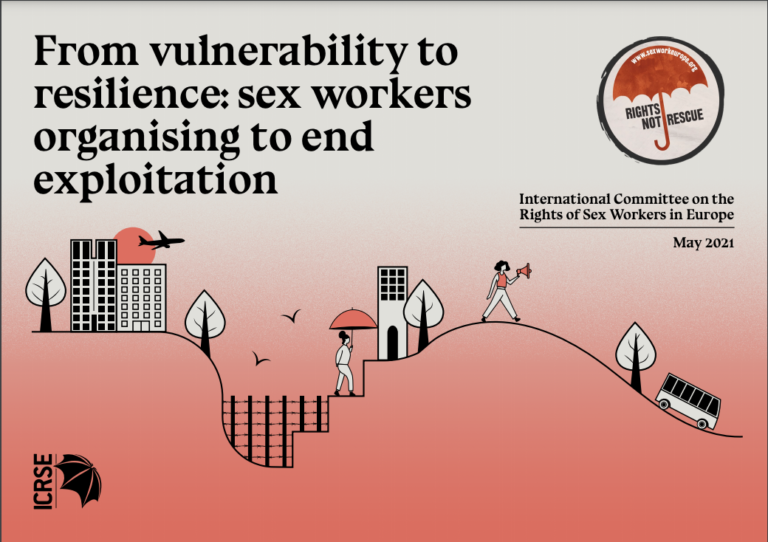Sex workers globally organize, unionize and develop initiatives to protect themselves from violence, exploitation, and human rights violations. They share strategies of how to work independently, where to work and how to keep themselves safe. Many sex workers’ organizations also play a vital role in preventing children from entering into the sex industry and supporting women who have been trafficked into it. As critical enablers for addressing violence and exploitation in the sex work sector, they contribute to the creation of more resilient communities, despite having no or limited funding. This report aims to support the recognition of the work of community-based and community-led programs in the field of anti-trafficking. As such, it is addressed to policymakers, experts, and civil society organizations active in countering human trafficking and to sex workers and their organizations to share best practices and effective approaches in eliminating exploitation in the sex work industry. The report has three parts: section 1 explains key definitions and concepts, and related sex workers’ demands; section 2 presents approaches and strategies that ICRSE members carried out within the framework of the Rights not Rescue program; finally, the report ends with recommendations for policymakers to upscale community resilience and to recognize and support community-led initiatives as important actors in the field of anti-trafficking.

